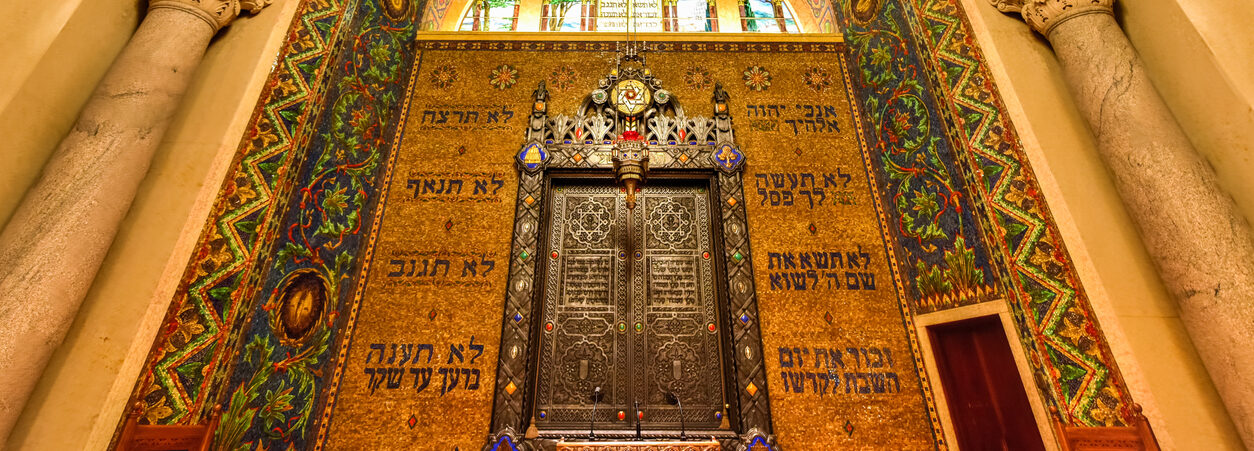We asked Clal’s Rabbinic Faculty the following; “Where did you spend the High Holy Days, and what did you observe or teach that gave you new insight into what this year might mean for the Jewish people?”
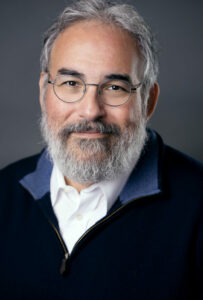 Rabbi Brad Hirschfield, President
Rabbi Brad Hirschfield, President
Although I did speak at one of my synagogue’s services on the second day of Rosh Hashanah, writing the Clal card took up more intellectual-spiritual bandwidth in terms of both my own preparation. and the reach of my words. That reflects a trend that will shape my thinking and our work this year, as it highlights the ever-expanding range of what people need from Jewish and where they go to get it. That is especially important because, as both Steve Jobs and Mark Cuban have said, “Your customers don’t always know what they need or want. You have to tell them.” Rather than interpreting that as an arrogant, albeit often successful, marketing ploy, I see it as our being called to think about others and their needs, even more than they might allow themselves to, and to take those needs, and the opportunity to meet them, as a genuine call to new forms of service and relationship.
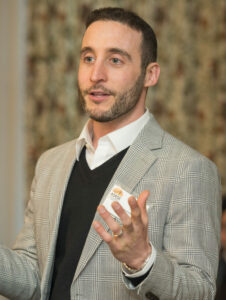 Rabbi Elan Babchuck, Executive Vice President
Rabbi Elan Babchuck, Executive Vice President
Here at Clal, we regularly teach about polarization in our society and how the hottest takes are rewarded with the most abundant clicks. Two weeks ago, we reached this trend’s apex: somebody wrote a hit piece on Martin Short! How dare they besmirch the legacy of a generational comedian! As the visiting rabbi of Aitz Hayim in Chicago, I shared (among other teachings) that the Talmud actually has the salve for this kind of behavior: the Book of “Beinoni.” Throughout the High Holidays, we read about the Book of Life and the…other…Book, but as one Talmudic sage proposed, we’re actually inscribed in all three books: the good one, the bad one, and the Beinoni (in-between) one. This teaching invites us to adapt our inclination to just one pole or one extreme by balancing it out with an opinion on its opposite pole and one that finds middle ground, too. Want to complain about Three Amigos? Fine – I agree. But you have to at least recognize that he was brilliant as Ed Grimley on SNL and just so-so in Father of the Bride 2. And if we can find this kind of balance in assessing Martin Short, perhaps we can do the very same for ourselves in the coming year, too.
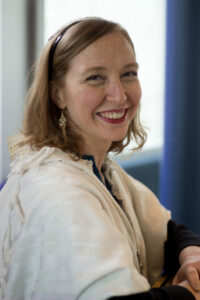 Rabbi Julia Appel, Senior Director of Innovation
Rabbi Julia Appel, Senior Director of Innovation
Maybe the miracle of being able to gather with others for prayer and celebration will wear off, but it hasn’t yet. The High Holidays were some of the most fraught days of the pandemic for me, a feeling of desperation to be together. For the first two pandemic High Holidays, I organized services in a local park for 50 friends and family. Last year I took the year off but ended up stepping in to call page numbers when a service leader got Covid. This year, I didn’t feel that same sense of danger around gathering, and that in and of itself was remarkable. For most of the last 15 years, I’ve been a hired addition to congregations and Hillels, communities of which I wasn’t actually a member (or the rabbi). For the first time this year, I had the pleasure of leading High Holidays in my home congregation, a room of over 1000 people but one that included close friends, parents of my children’s classmates, people I see in my neighborhood, people I share kiddush with. There is a blessing one says when seeing a large group of Jews gathered – “Blessed are You, the Knower of secrets.” What a miracle it still is for me to look out over a large crowd of Jews gathering for the holiday, and what a pleasure to see so many familiar faces whose stories I know.
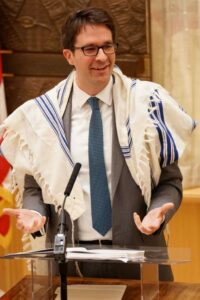 Rabbi Joshua Stanton, Director of Leadership Formation
Rabbi Joshua Stanton, Director of Leadership Formation
Congregational membership surged during the years since the Covid-19 pandemic — but did not translate into filled seats during the High Holy Days until this year. This suggests that “membership” in a synagogue or spiritual community might not have countered the isolation that many people continue to experience, or at least not as much as it once might have. This connects directly to the work of the Belonging Project, which Rabbi Appel is spearheading in collaboration with other members of the CLAL faculty. Perhaps a large number of people have been just barely holding on — to their synagogue memberships, their sense of being part of something bigger, their sense of having a place to go, and their sense that togetherness has more than pro forma significance. It suggests that we have a lot of rebuilding to do emotionally and relationally in the year ahead.
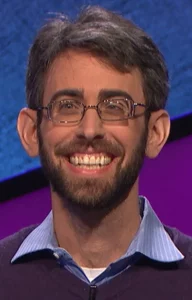 Rabbi Geoff Mitelman, Founder, Sinai and Synapses
Rabbi Geoff Mitelman, Founder, Sinai and Synapses
Every year, I feel like Rosh Hashanah sneaks up on me. The melodies, the crispness in the air, the smell of our community’s tent — they all make me think, “Wait, I’m not ready for this to be happening now!” And this is true whether Rosh Hashanah comes around Labor Day, in late September, or anywhere in between, and even if I prepared myself during Elul. But this year, I truly felt like Rosh Hashanah was more the warm-up for the rest of the season, through Simchat Torah. It’s OK if I’m not feeling ready right now; it’s a preparation over many weeks to help transition into the new year. We’re often so focused on the immediate that we forget the value of slow and extended reflections. We don’t always know where our actions will take us, but I now think of Rosh Hashanah as laying the groundwork for the rest of this year.
Here at The Wisdom Daily (TWD), we feature spiritual insights on daily life, designed to help improve and enhance our relationships with ourselves, our families and the world around us.

